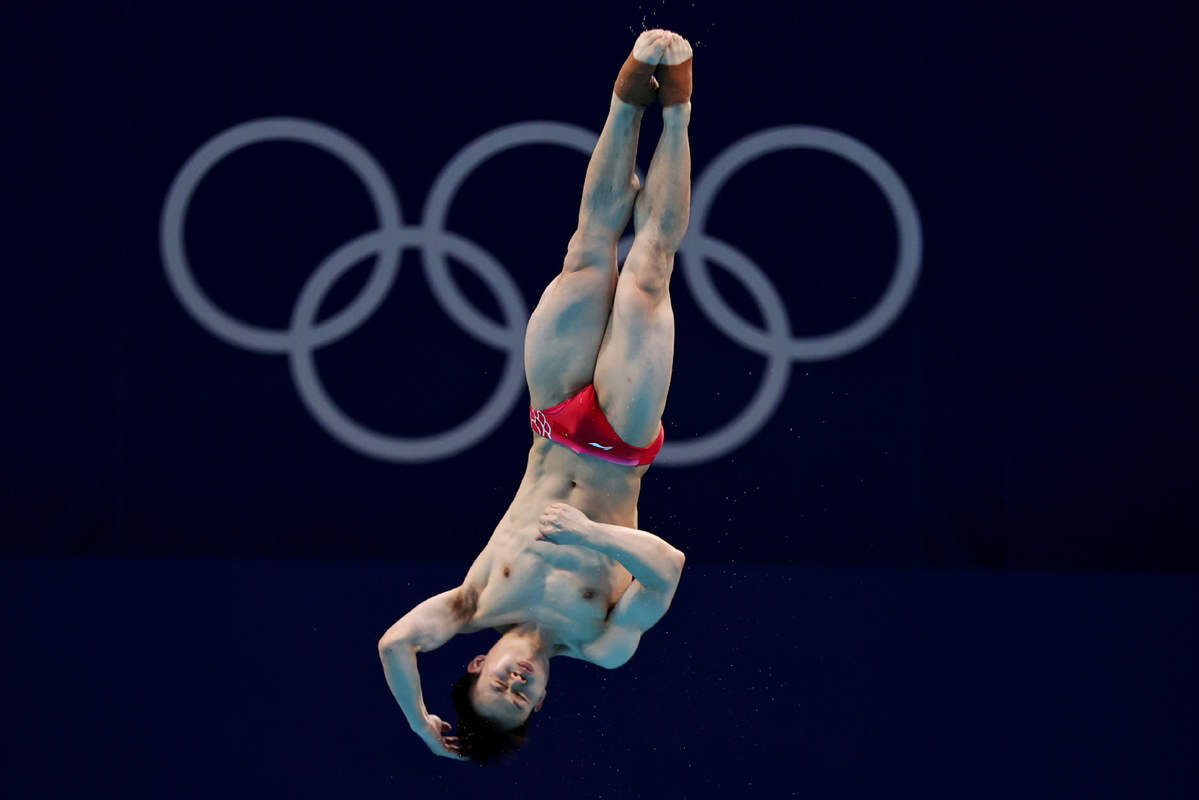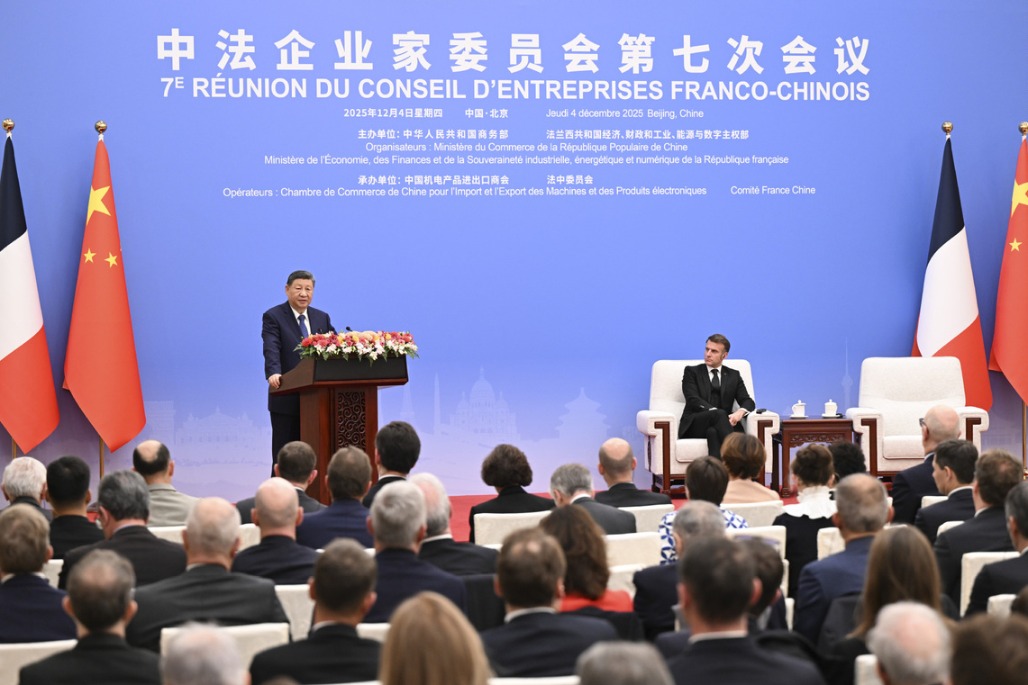NYT uses dirty tricks to tarnish China's Olympic gold
By Ke Nan | chinadaily.com.cn | Updated: 2021-08-03 17:41

Yesterday, when my father told me a friend's relative won a gold medal at the Tokyo Olympic Games, we shared a laugh at what a small world it is. How funny that in a country of so many people, there would be such a connection to a world-renowned sporting event?
But that wasn't the biggest laugh I had in recent days. An even better example of comedy would be what "reporter" Hannah Beech wrote in the New York Times.
She wrote an article which can be added to the ever-growing pile of anti-China claptrap from the United States "paper of record", titled "The Chinese Sports Machine's Single Goal: The Most Golds, at Any Cost". To save you the time and money on a subscription, I will summarize. Beech's verdict is as follows: China has a state-run gold medal "machine" which relentlessly crunches preteen girls into gold-winning androids, in a small set of carefully chosen sports Western countries are unable to fund and thus cannot compete in.
Crafty and despicable. That's what Beech was trying to imply, dehumanizing the Chinese sports system and Chinese athletes in one fell swoop.
Beech transformed Liao Qiuyun, a Chinese female weightlifting athlete and silver medalist, into a victim of state oppression, claiming she didn't mention her mental toll like US gymnast Simone Biles or Japanese tennis player Naomi Osaka. The implication seemed to be Liao had suffered similar trauma and been silenced or otherwise prevented from speaking out. But this was nothing more than an assumption. Neither Beech nor anyone else can read minds, and it is not the job of a journalist to do so.
To be fair, the Chinese sports system's goal is to win more medals, just as its counterpart in the US. Alan Ashley, a former US Olympic Committee's chief of sport performance, put it like this: "We want to go in and win the medal count, that's our objective." There is no ultimate difference between the two — except, of course, for how they are covered in the press.
The highlight of Beech's article comes here: "Beijing's focus has been on sports that can be perfected with rote routines, rather than those that involve an unpredictable interplay of multiple athletes."
Excuse me? Surly she was not referring to swimming, athletics and gymnastics, because at the Rio Olympic Games, 32 out of 46 (approximately 72 percent) gold medals the US won were from these three categories.
So when Beech said "it's no coincidence that nearly 75 percent of the Olympic golds China has won since 1984 are in just six sports: table tennis, shooting, diving, badminton, gymnastics and weightlifting", is she suggesting table tennis has less interplay than swimming, shooting is more predictable than athletics, badminton doesn't require multiple athletes and six is less than three?
If you think there's a touch of racism in Beech's article, as she implies Chinese athletes are only able to perform "rote routines" rather than sports requiring teamwork and intelligence, there's more absurdity on the way. Beech adds, "Aside from women's volleyball, China has never won Olympic gold in a large team sport."
What does that even mean, "aside from women's volleyball"? Would you say "aside from eating pork, I'm a strict vegetarian"? Are you trying to tell us women's volleyball is not as good as other large team sports, that it somehow doesn't qualify? That sort of language we usually call misogyny.
Let me put it very clearly: Women's volleyball is a large team sport, China did win Olympic gold in women's volleyball, and that means China did win Olympic gold in a large team sport.
For the record, China has a long history of large team sports and winning medals in Olympic Games. The Chinese women's volleyball team has gotten three gold, two silvers and one bronze. The women's basketball team has one silver and one bronze. The women's football team won a silver medal at the Atlanta Olympic Games. If not for questionable refereeing, the Chinese team might have won gold over the US.
This reminds me of the good old days when the New York Times was a relatively normal newspaper. In a New York Times article published in 1988, "China Strains for Olympic Glory", Trip Gabriel cited John Chaplin, a US coach who helped Chinese sports teams and countered the idea any race is superior to another.
In contrast to Beech's mixture of racism and misogyny, Chaplin simply said: "It has nothing to do with race. It's simply that a disproportionate number of people from a certain group at a certain time are seeking success through athletics.''
But times have changed. China has since proved definitively that achievement has nothing to do with race. Not that it matters to Beech or the New York Times. Now, when it comes to China, you can use whatever dirty tactics you want. Racism? Misogyny? Double standards? No problem, fire at will.
For those who view Chinese athletes as dumb medal-winning androids, I suggest you watch a video of Liu Guoliang addressing to his fellow athletes. Liu is an Olympic gold medalist and former coach of the Chinese table tennis team. In the video, Liu explained the secret of Chinese table tennis team's success: modesty, honor and teamwork.I don't think Liu's team is different from any other outstanding sports teams all over the world.
If you still insist, how about watching Lu Xiaojun's training video? Lu, one of the most famous Chinese weightlifters athlete and a father of two daughters, won gold at the age of 37. And, strangely enough, he is admired by many Western strength training enthusiasts.
Despite all the ways in which Beech is clearly wrong, I do hope the Chinese sports system continues to produce world-class talent. There is always room for improvement.
Oh, don't be too anxious, Ms. Beech, after all, we Chinese still have a long way to win men's football gold.
The author is a science writer.
The opinions expressed here are those of the writer and do not necessarily represent the views of China Daily and China Daily website.
If you have a specific expertise, or would like to share your thought about our stories, then send us your writings at opinion@chinadaily.com.cn, and comment@chinadaily.com.cn.
























